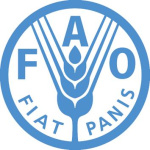- Domeniu: Agriculture
- Number of terms: 87409
- Number of blossaries: 0
- Company Profile:
Established in October 1945 with the objective of eliminating hunger and improving nutrition and standards of living by increasing agricultural productivity, FAO coordinates the efforts of governments and technical agencies in programs for developing agriculture, forestry, fisheries, and land and ...
Leaflike structures at the first node of the seedling stem. In some dicotyledons, they contain stored food for the young plant not yet able to photosynthesize its own food. Often referred to as seed leaves.
Industry:Biotechnology
Liquid contents of the amniotic sac of higher vertebrates, containing cells of the embryo (not of the mother). Both fluid and cells are used for diagnosis of genetic abnormalities in the embryo or foetus.
Industry:Biotechnology
Liquid endosperm of the coconut, often used to supply organic nutrients to cultured cells and tissues.
Industry:Biotechnology
Living cell associated with the sieve cell of phloem tissue in vascular plants.
Industry:Biotechnology
Localized cell multiplication. Generally it designates a collection of cells which have undergone genetic transformation, forming a tumour. Neoplasmic cells differ in structure and function from the original cell type.
Industry:Biotechnology
Long-lived B and T cells that mediate rapid secondary immune responses to a previously encountered antigen.
Industry:Biotechnology
Loss of native configuration of a macro-molecule (protein or nucleic acid) by physical or chemical means, usually accompanied by loss of biological activity. Denatured proteins often unfold their polypeptide chains and express changed properties of solubility. The separation of duplex nucleic acid molecules into single strands. Most commonly used by genetic engineers to describe the destruction of hydrogen bonds maintaining the double-stranded nature of all or part of a DNA molecule.
Industry:Biotechnology
Lymphocyte that pass through the thymus gland during maturation. Different kinds of T cells play important roles in the immune response, being primarily responsible for the T cell-mediated response or cellular immune response.
Industry:Biotechnology
Lymphocyte that pass through the thymus gland during maturation. Different kinds of T cells play important roles in the immune response, being primarily responsible for the T cell-mediated response or cellular immune response.
Industry:Biotechnology
